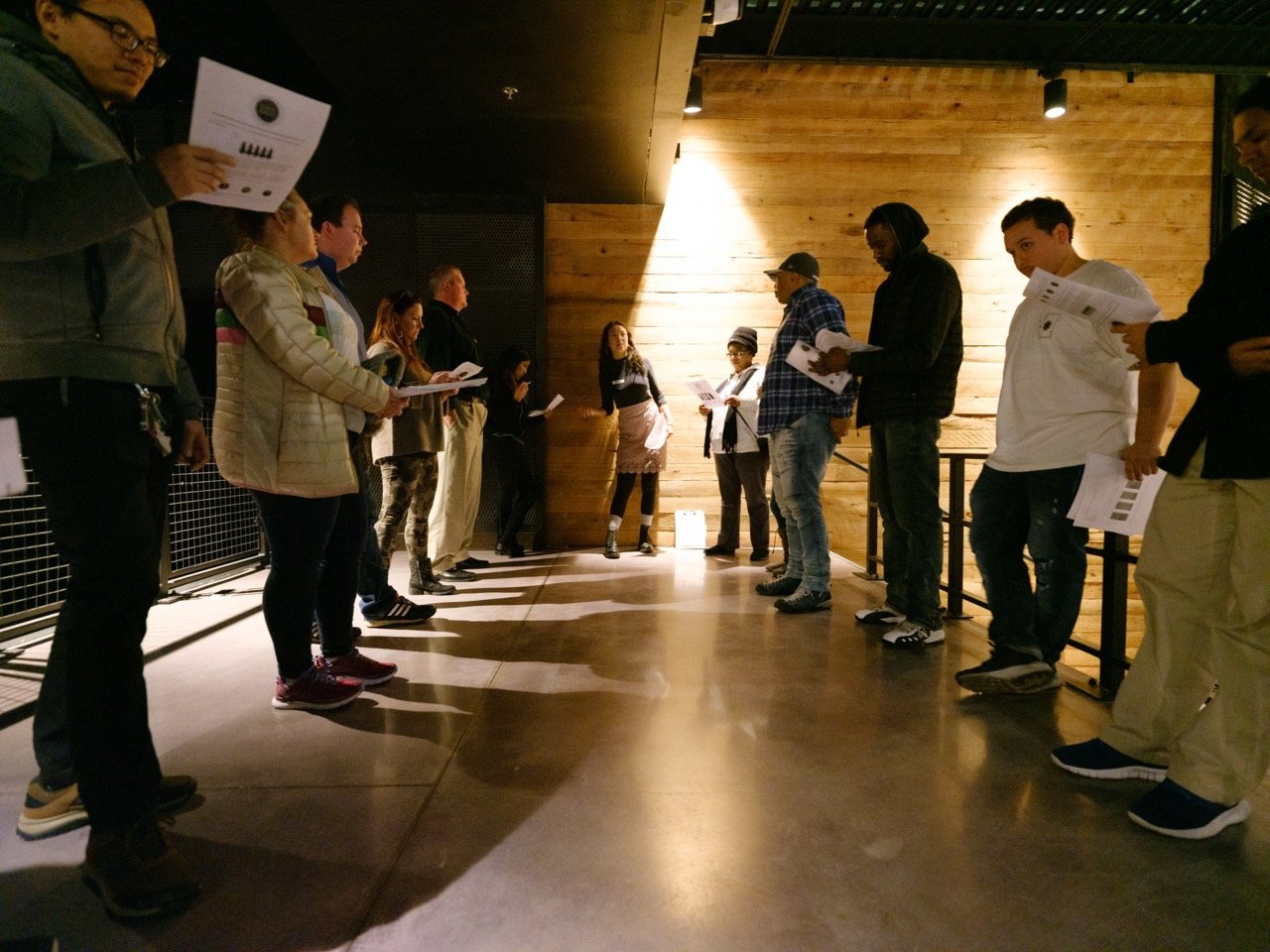WHAT IS
SAFE BARS?
Safe Bars’ mission is to create safe, equitable, and welcoming alcohol-serving hospitality spaces. We use active bystander intervention, de-escalation, and allyship strategies to empower the staff of bars, restaurants, hotels, breweries, distilleries, clubs, event venues, suppliers, distributors, and brands to stop sexual aggression and other forms of gender-based violence in their work environments.
TRAINING WE OFFER
BESPOKE SERVICES
& SPEAKING
START A CHAPTER
Speaking Up
with safe bars
Becoming a Safe Bars-trained establishment is the right thing to do. With Safe Bars, you show your community, patrons, and staff your commitment to providing a safe, welcoming, and respectful environment.
Owners and managers build customer satisfaction and loyalty. A safe and welcoming environment allows guests to enjoy themselves and be more likely to return. Safe and respectful workplaces mean less staff turnover. Safe Bars is good for the bottom line.
Patrons enjoy their time out because more safety equals more fun and repeat guests.
Cities and towns change the culture of their nightlife scene to one of safety and respect, which is good for their reputation and good for the local economy.
We’ve trained staff of more than 150 bars, restaurants, breweries, distilleries, event spaces, and clubs nationwide, from places with fewer than five employees to more than 500. We’ve also trained teams in more than 30 cities and towns around the U.S. and Canada to run Safe Bars programs where they live.
WHY BYSTANDERS
The National Sexual Violence Resource Center (NSVRC) defines an engaged bystander as “someone who intervenes in a positive way before, during, or after a situation or event in which they see or hear behaviors that promote sexual violence.” Bystander skills can be applied to a wide range of situations and behaviors, everything from a sexist joke to someone persuading an intoxicated acquaintance to leave a bar with them to a co-worker using a tight workspace as an excuse to touch without consent.
Benefits of the Bystander Approach:
It discourages victim-blaming.
People are more likely to intervene when they feel confident about their efficacy.
It can be effectively implemented with ALL audiences.
It shifts responsibility for prevention to the community so that a broader range of people can become actively engaged in sexual assault prevention.
Safe Bars’ bystander program is effective because it provides participants with the knowledge of social norms in hospitality that support problematic and abusive behaviors and the skills necessary to change them by safely and effectively intervening.







